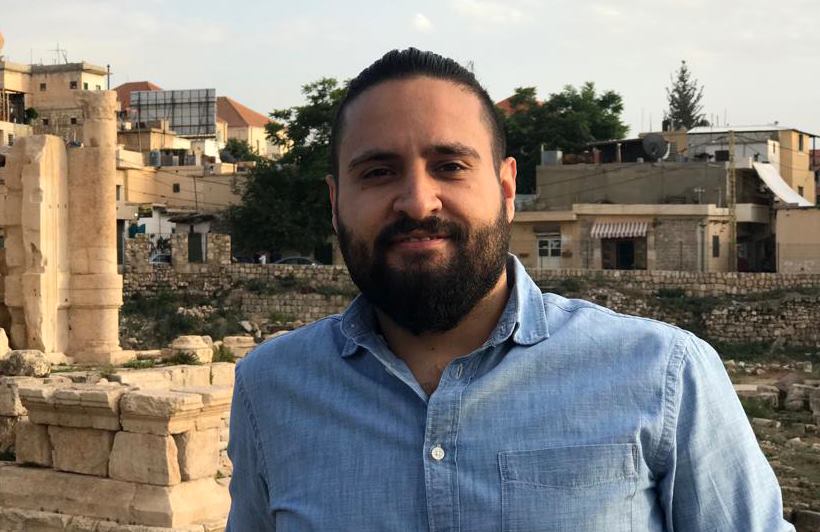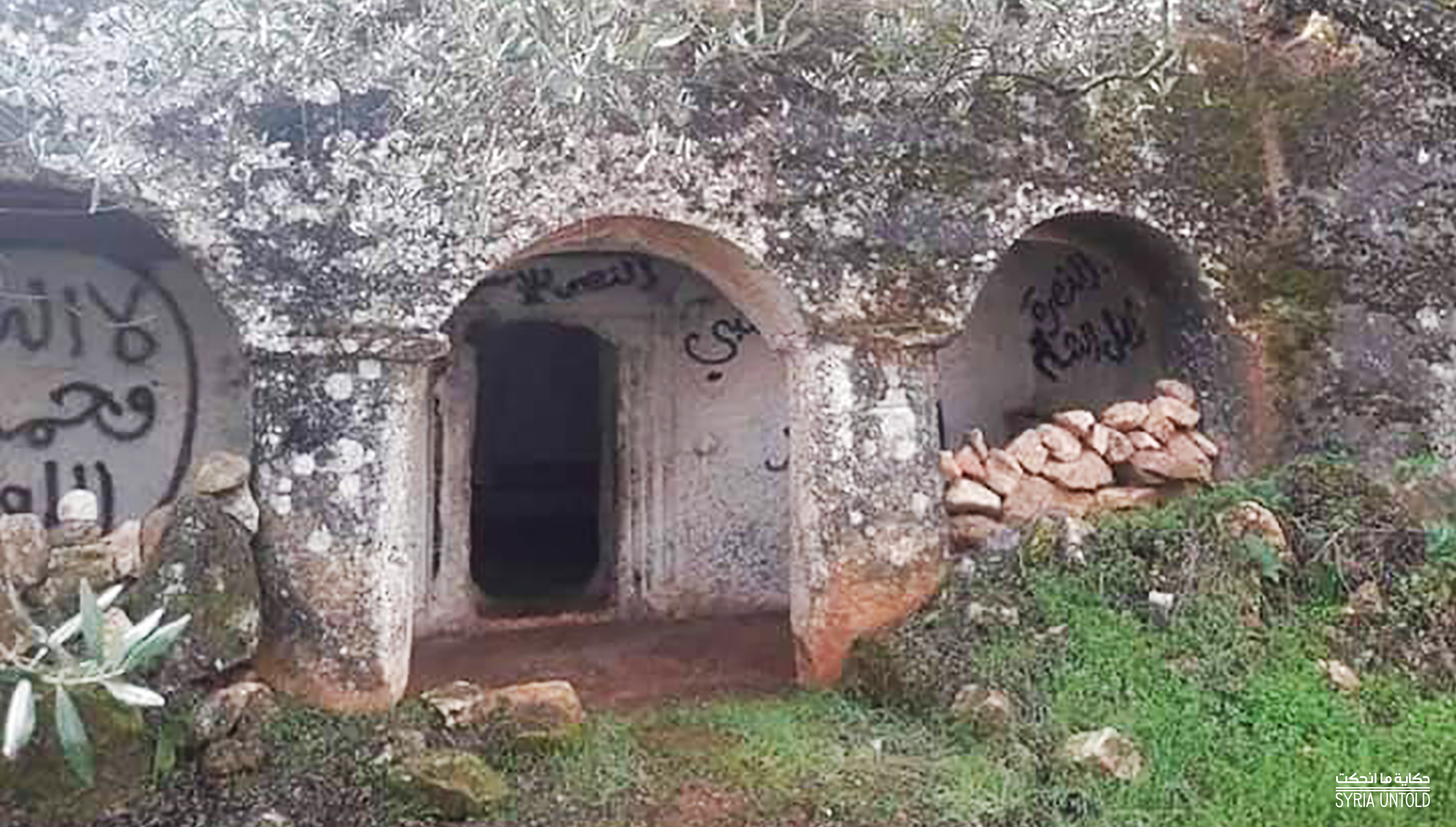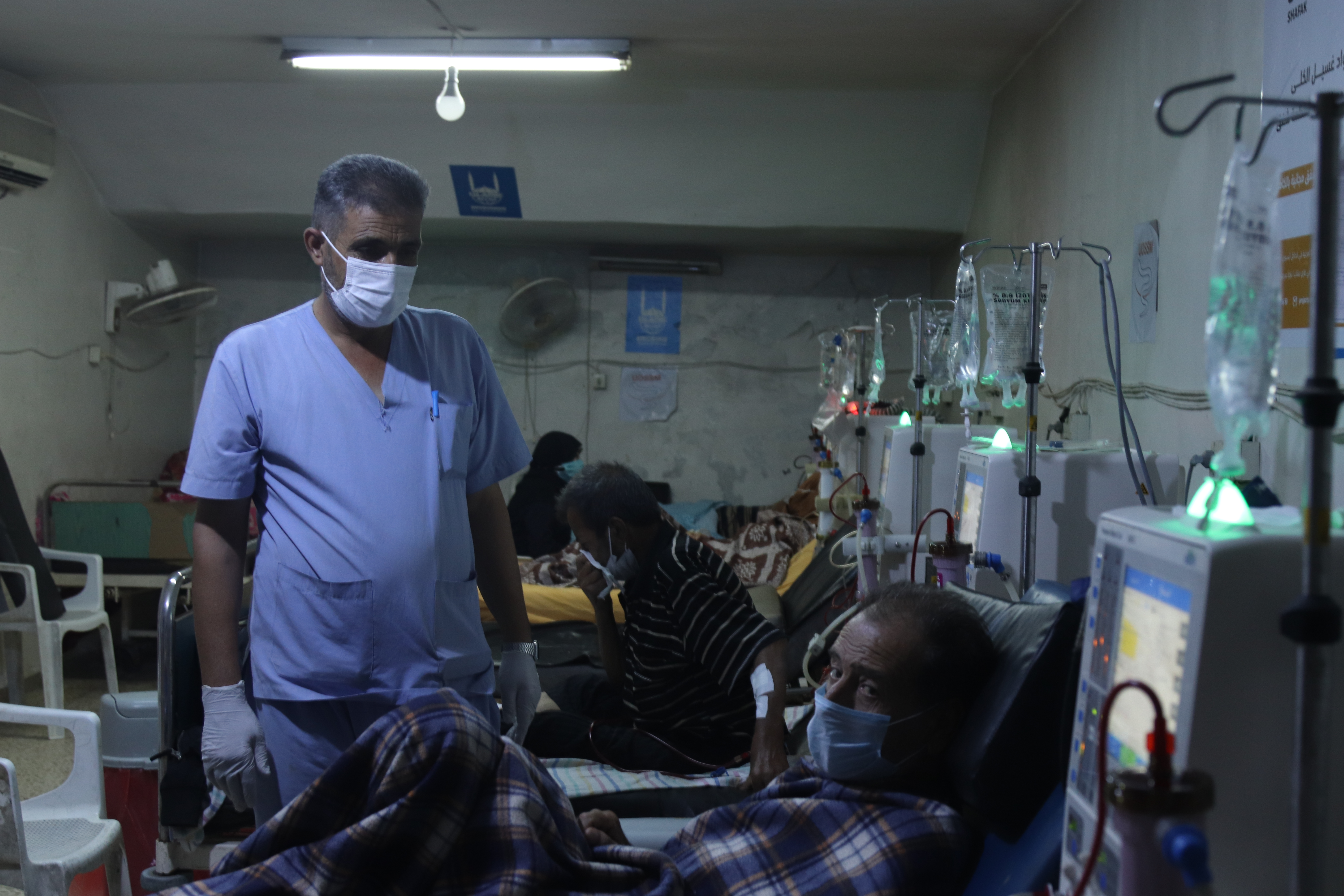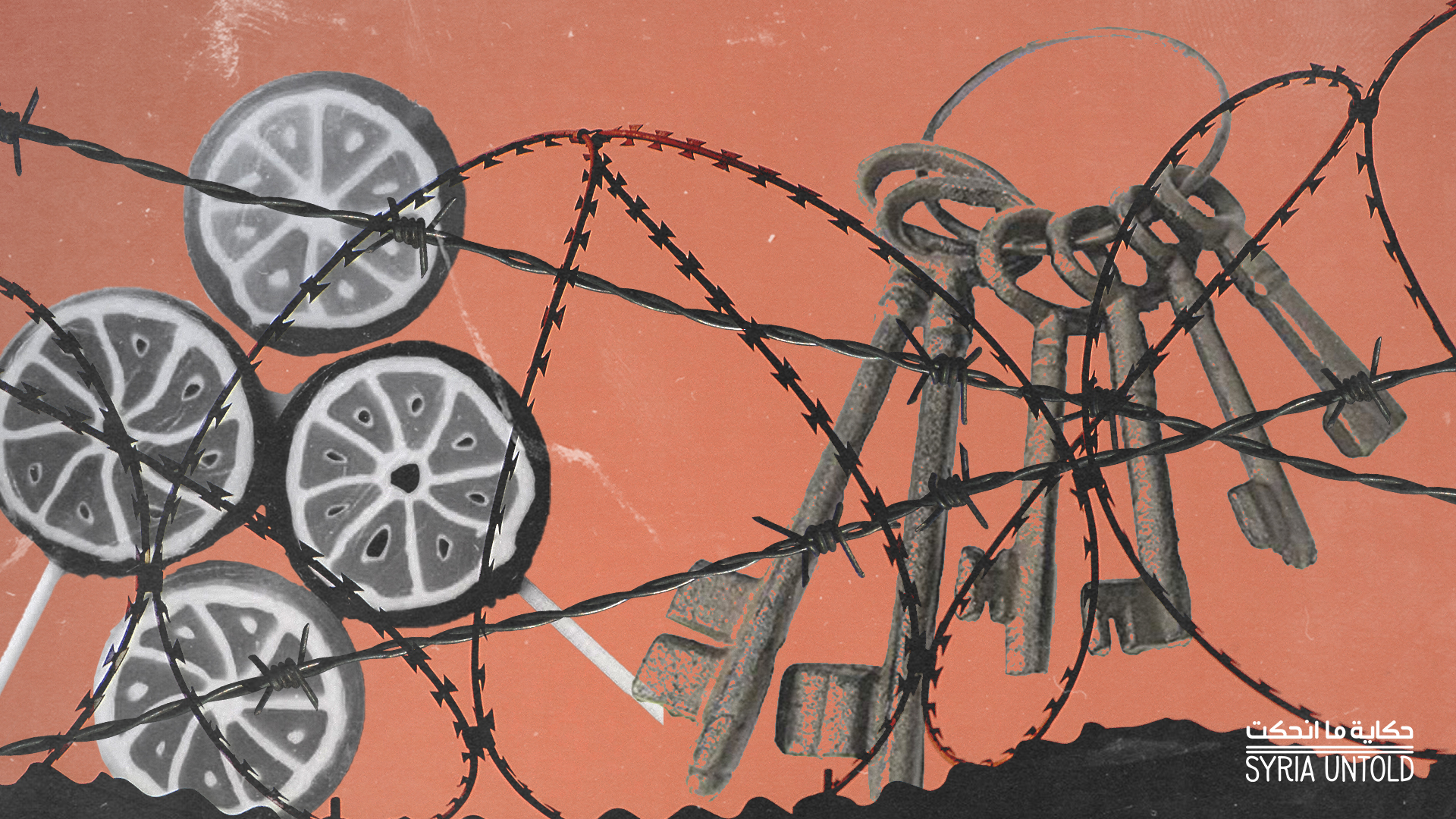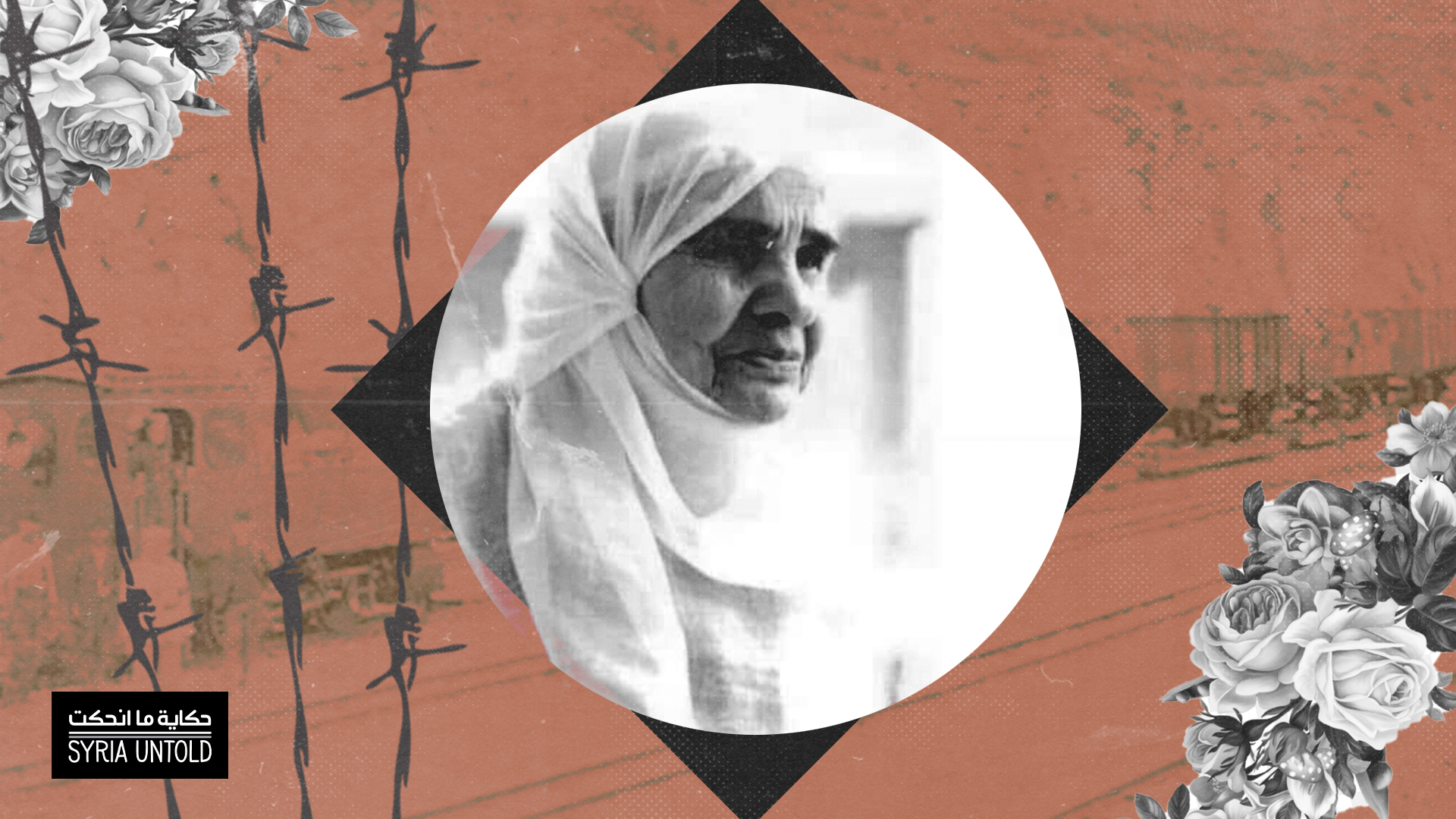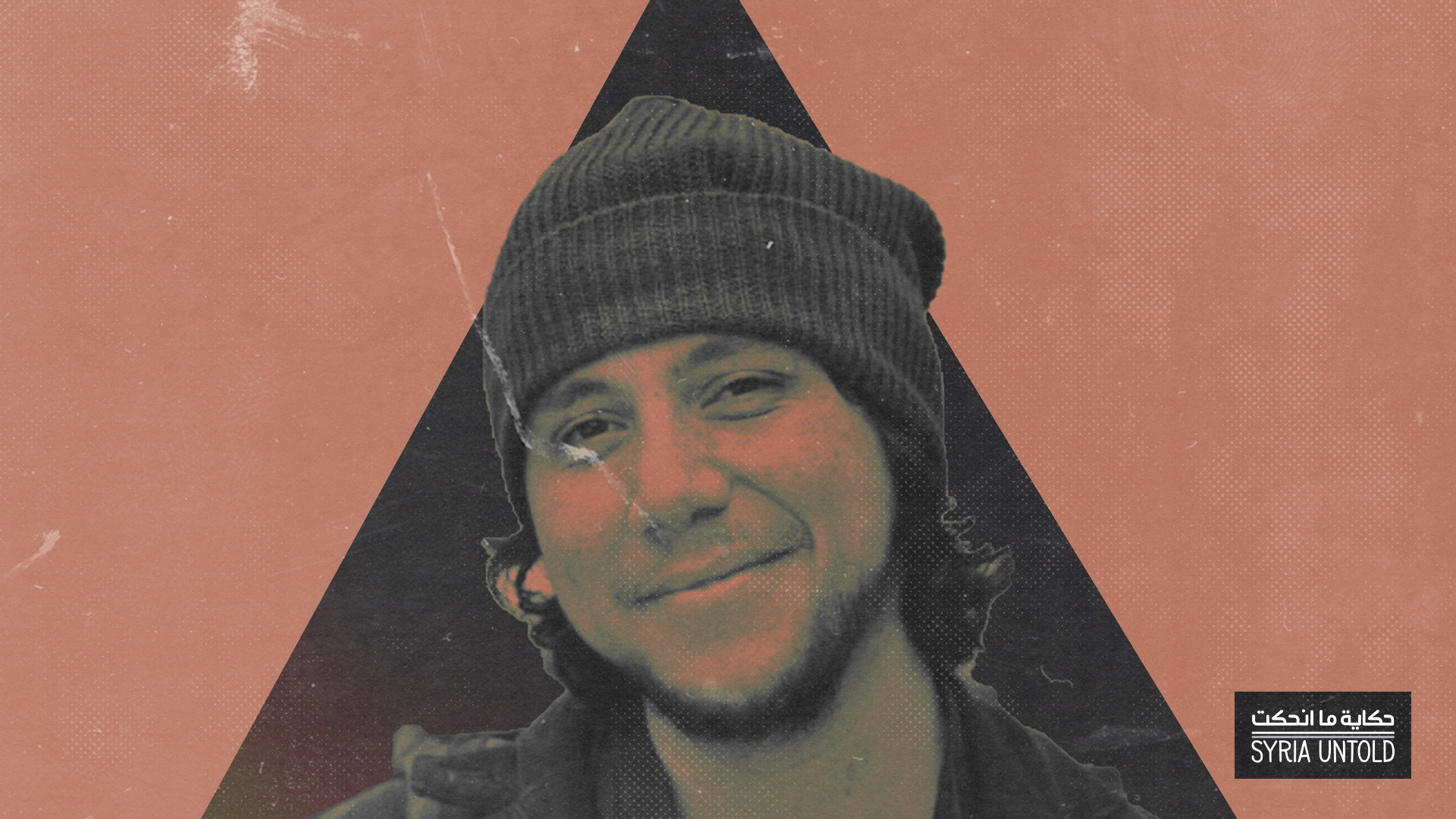Read this report in its original Arabic here.
“While I was covering events, I became part of them; I became part of the news that I was supposed to be reporting on.”
“I’m searching for extra work outside of journalism.”
These are phrases I’ve heard often in the past year when meeting with media activists in northern and northwestern Syria. Many of them have already been uprooted and displaced from their homes—multiple times, in some cases. Others have been forced to abandon their profession, resorting to jobs with higher pay to survive month to month.
Rama* has worked as a correspondent for a number of Syrian media outlets in the country’s northwest. “Experiencing displacement was difficult,” she tells SyriaUntold. “Especially since I’m responsible for both myself and my family.”
For young Idlib doctors who treated war wounds, COVID an invisible new threat
02 October 2020
Much of northwestern Syria, including most of Idlib governorate, is controlled by the hardline Islamist group Hay’at Tahrir al-Sham (HTS). In 2019, the Syrian regime waged its most deadly escalation yet against this area, seizing the northern countryside of neighboring Hama governorate and wide swathes of rural southern Idlib.
Among the places regime forces recaptured was Kafr Nubl, Rama’s hometown. The fighting forced her to flee in 2019, northward to Idlib city.
Displacement imposed many new difficulties on Rama, she says. “The hardest moment is when my monthly income isn’t enough. I work and I give everything, and in the end, my earnings sometimes don’t even cover rent. Now I’ve been forced to leave [journalism], and I feel that I’ve become a media consumer.”
Under the rule of the Syrian Salvation Government (SSG), which is affiliated with HTS and administers the areas under the group’s control, it is very difficult for women journalists in particular to do their jobs. They face difficulties in moving around northwestern Syria and finding work opportunities, more so than male journalists. Both women and men, however, are limited in their freedom of expression and independence, often facing harassment while working in public.
Shatha* is a reporter working in northwestern Syria. She cannot move freely while working, she says. “One time, I was taking photographs in the streets of Idlib. Suddenly, members of al-Nusra came up to me and started interrogating me.” Many people in northwestern Syria call HTS by the name of its predecessor organization, Jabhat al-Nusra. “I had to lie to them, and I told them I was taking pictures of the dresses on sale in my friend’s shop. They took my phone, and that’s when I felt like it was the end. But, thank God, all they did was delete the pictures, and they didn’t search the entire device.”
I work and I give everything, and in the end, my earnings sometimes don’t even cover rent.
Shatha says she didn’t inform her interrogators of her work as a journalist; she was previously pursued by the SSG after she published an investigation on their human rights violations.
Syrian journalist Abdelaziz al-Azzab, head of the Syrian Journalists Club in Turkey, closely follows the issues faced by his colleagues.
A Syrian visiting a Nazi camp
25 September 2019
Mending what has been broken
12 February 2021
According to Azzab, female journalists face the biggest challenges. “For example, there is the issue of harassment, which is the largest violation of their rights within some organizations. Even if there was legislation in place for this (there isn’t) we haven’t received any complaints because our female colleagues prefer to keep things quiet for many reasons, including societal pressures.”
Azzab says there is a clear failure by both the SSG and the opposition-run, non-HTS Syrian Interim Government (SIG) to enact legislation regulating journalism inside Syria. “Outlets working outside Syria without licenses are far from any responsibility, even under the laws of their hosting countries. Morals are the only thing tying news organizations to the Syrian journalists working for them.”
‘I got used to displacement’
Hamzeh* lives in northwestern Syria, where he works as a correspondent and coordinator with a number of local and international media outlets. He had to leave his hometown of Darayya, just outside Damascus, in 2016, as part of a truce deal that saw civilians and fighters forcibly removed from the town upon government recapture. Hamzeh later ended up in Idlib.
“That period was difficult, especially because I had just arrived in Idlib and didn’t know what I should do,” Hamzeh recalls. “I left behind my studies; I was in the 10th grade. I didn’t have enough resources to start a job. I couldn’t take anything with me from Darayya.”
Hamzeh began working in media, then studying at the opposition-run Idlib University’s technical institute. Several times he tried, unsuccessfully, to travel to Turkey.
They took my phone, and that’s when I felt like it was the end.
“Media work has become restricted recently because there are so many media workers and journalists in Idlib. All the media workers who were in Damascus, Aleppo and rural southern Idlib were driven from their homes and ended up here. Outlets have also reduced their work because the Syrian file is no longer a priority for them,” he laments.
“Now I have a side job outside of media. I’m working in a shop selling falafel.”
Syria’s lucrative detainment market: How Damascus exploits detainees’ families for money
13 April 2021
A decade on, how can we work to free Syria’s detainees?
16 April 2021
“I got used to displacement,” says Anwar*, another journalist in northwestern Syria. “I’ve been displaced several times: from Homs to Aleppo, then from Aleppo to Idlib. I lived for two years in rural southern Idlib. My most recent displacement was very difficult. I faced a huge challenge between covering the bombings and massacres in rural southern Idlib and northern Hama, and being displaced myself and moving my possessions.”
Being forced to move so many times has had a huge financial burden on Anwar, he says. He’s turned recently to selling electronic equipment alongside his work as a journalist so that he can make ends meet for his family.
“The income that journalists here make recently, since about two years ago, doesn’t cover expenses. They need money to pay rent, for transportation while working. And not only is the equipment they need is very expensive, but it can also break at any moment. These pressures forced a friend and me to start a separate business project.”
Northwestern Syria is among the last areas of the country still outside regime control. Over the years, it has become a destination for Syria’s displaced, forced out of their homes elsewhere in the country and, in many cases, bussed north in organized convoys after their formerly opposition-held towns were retaken by regime forces. Today northwestern Syria is home to around four million people, according to the Syrian American Medical Society (SAMS) and other aid organizations.
These conditions present challenges for journalists in northwestern Syria. “I’ve worked as a media activist since the outbreak of the revolution, when I was documenting the protests,” says Abdelrazzaq al-Shami. “I was displaced from the Jobar neighborhood of Damascus to East Ghouta after my house was bombed in 2012. After the chemical massacre in 2013, I left East Ghouta and went to Madaya, but then we were besieged alongside Baqin and Zabadani. We witnessed a military campaign that ended in starvation and our displacement to northern Syria.”
Now I have a side job outside of media. I’m working in a shop selling falafel.
For Shami, the barrel bombs that regime forces fired on opposition-held areas were easier than the hunger. “It’s difficult to watch your family, to watch children, die of hunger and you’re unable to give them anything,” he remembers.
Upon his arrival to northwestern Syria, Shami continued his journalism, taking on correspondent jobs with a number of news agencies and television stations. But, like, Anwar and Hamzeh, he had to resort to secondary jobs to make ends meet.
Sultana’s story
10 July 2021
Remembering my friend Bassel Shahadeh
28 May 2021
Exploitation
Migration to other jobs is not the only concern facing journalists in northwestern Syria. They also carry the fear of arrest and an inability to settle permanently in one place within a constantly changing part of Syria.
There are a number of local and international organizations working to alleviate these challenges, but so far none of them has been able, for example, to pressure local and other media outlets into respecting journalists’ rights as workers. Some journalists are also unaware of these organizations and their personal rights as members of the press.
Ebaa Munzer is a support coordinator at the Syrian Center for Media and Freedom of Expression. “There is definitely a need for unions and other bodies that work to support media workers in the event of rights violations, and for existing bodies to have a greater role,” she tells SyriaUntold.
“But the lack of work contracts and journalists’ inability to protect their own rights means that any opportunities for intervention are limited,” Munzer adds. “Each party will have their own justifications and point of view as long as there is no written contract. This is especially true amid a lack of both rule of law and an independent judiciary.”
Munzer’s “most important” advice: “Protection of rights through contracts that guarantee the needs of each party involved.”
Her advice is in line with some of the difficulties described by Abdelaziz al-Azzab, head of the Syrian Journalists Club in Turkey. “There are very few media outlets operating inside northwestern Syria,” he says. “Some of the responsibility falls on journalists and media professionals working there for organizations based outside of Syria, putting these organizations outside the scope of accountability. For example, a sizable number of institutions based in Turkey are unlicensed. Even their employees who reside in Turkey are unable to obtain certain legal rights. There are no laws to regulate the work of journalists and the institutions they work for.”
There are no laws to regulate the work of journalists and the institutions they work for.
It is worth noting the many principles that journalists and media workers must abide by in dangerous areas such as Syria, as well as the rights that they have regarding the organizations they work for—that is, when there are clear contracts, such as those for freelancers.
Still, Syria overall ranks 173rd out of 180 countries for press freedom, according to the Reporters Without Borders 2021 Press Freedom Index. According to Munzer, the problem is not only related to northwestern Syria. “I think the issue [of unregulated employment] has expanded over the past decade, with the emergence of the citizen journalist,” she says. “This arose amid conditions imposed by the Syrian government, which prohibits a free press, as well as by the war. That’s why the citizen journalist has come to represent the sole source of information. The media needs them, as they are afraid of sending their own trained correspondents to cover conflict zones. After all, Syria has been one of the most dangerous places for journalists for years.”
All that said, I nevertheless still hear from journalists like those of Shatha, who spoke to me for this story and continues her work.
“I thank God every time I go out of the house and work on an investigation or gather photographs and information, and then return home safely without coming across any [HTS] members. I don’t know how much longer I will continue my work as a journalist, secretly and cautiously, in an area teeming with extremists,” she says.
“But despite everything, I’m still going.”
*At their request, SyriaUntold has changed the names of some journalists quoted in this report to protect their safety.


